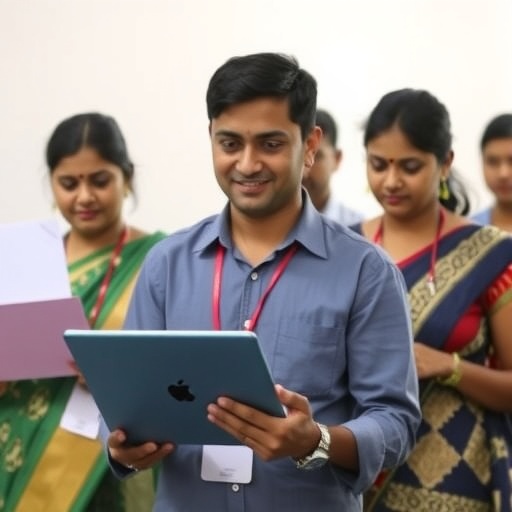In a rapidly evolving educational landscape, the need for professional development among higher education teachers in India has gained unprecedented significance. The recent study by Mishra, Bhunia, and Puii delves into the multifaceted experiences of these educators, shedding light on the challenges they face as well as the opportunities that emerge through continued professional growth. This research paints a comprehensive picture of the current state of teacher development in India and offers insights that could contribute to enhancing educational quality across the country.
The central thesis of the study posits that higher education teachers in India are increasingly recognizing the necessity of professional development to adapt to the changing demands of the academic environment. As globalization and technological advancements reshape the educational landscape, educators find themselves at a crossroad—either seguir un camino de desarrollo continuo o quedar rezagados en un sistema que exige adaptabilidad. This recognition underscores the urgency for professional development initiatives that cater specifically to the unique needs of these teachers.
One aspect highlighted in the study is the diverse motivations teachers have for pursuing professional development. While some are driven by a desire to enhance their teaching methodologies, others seek to contribute meaningfully to their academic communities. Furthermore, an important finding indicates that many teachers are motivated by the prospect of improving student outcomes. This perspective reflects a growing awareness among educators that their personal growth is intricately linked to the success of their students.
However, the study also uncovers significant barriers that inhibit teachers from engaging in professional development. Financial constraints are a primary concern, as many educators face limitations on their budgets for attending workshops or conferences. Additionally, the lack of institutional support often leaves teachers to navigate their professional development journey independently. These challenges not only stifle individual growth but can also impede the overall advancement of educational practices in higher education institutions.
The research also indicates that the quality and relevance of available professional development programs vary widely. Many programs are generic and do not address the specific needs of higher education teachers in India. The authors argue for a more tailored approach to professional development that recognizes the unique contexts in which these educators operate. By developing programs that align more closely with their real-world challenges, institutions can foster greater participation and commitment among teachers.
Another notable finding from the study pertains to the role of technology in facilitating professional development. With the emergence of online learning platforms and digital resources, teachers now have unprecedented access to a vast array of learning opportunities. However, the study reveals that many educators feel overwhelmed by the sheer volume of information and tools available. As such, there is a pressing need for guidance in navigating these resources effectively and efficiently. This calls for institutions to not only provide access to technological tools but also to offer training and support in their utilization.
Moreover, the research emphasizes the importance of peer collaboration in the professional development process. Teachers who engage with their colleagues in collaborative learning experiences are more likely to report positive outcomes from their professional growth endeavors. Such collaborative efforts foster a sense of community, where educators can share best practices, exchange feedback, and collectively overcome challenges. The study suggests that institutions should actively encourage collaborative professional development initiatives, as they can lead to more significant improvements in teaching approaches.
Another critical area that the authors explore is the impact of leadership on teachers’ professional development experiences. Effective leadership within academic institutions is crucial for creating a culture that values continuous learning and development. Leaders who prioritize professional development not only promote a positive work environment but also model the behaviors they wish to see in their faculty. This includes encouraging teachers to take time for their growth and recognizing their efforts through formal acknowledgment and rewards.
The study also highlights the necessity for ongoing evaluation and assessment of professional development programs. Measuring the effectiveness of these initiatives requires a multi-faceted approach, incorporating feedback from educators, student performance data, and institutional outcomes. By assessing the impact of professional development on both teachers and students, institutions can make informed decisions about program structure, content, and delivery methods.
As the study elaborates on the experiences of higher education teachers in India, it also acknowledges the global context in which these discussions take place. The emphasis on lifelong learning and adaptability is not unique to India; it is a theme resonating with educators worldwide. As countries strive to elevate their educational standards, the experiences and insights of Indian educators can offer valuable lessons for a broader audience.
In conclusion, the research conducted by Mishra, Bhunia, and Puii provides a crucial examination of the current landscape of professional development for higher education teachers in India. By highlighting both the opportunities and challenges faced by these educators, the study contributes significantly to the dialogue surrounding teacher growth in an increasingly complex educational environment. As institutions work towards creating more supportive and effective professional development frameworks, the insights garnered from this research can have a lasting impact on the quality of higher education in India and beyond.
In essence, this study emphasizes that investing in the professional development of higher education teachers is not merely an individual concern but a collective imperative that stands to benefit the entire academic ecosystem. It challenges all stakeholders—educators, administrators, policymakers, and institutions—to rethink their approaches and strategies for fostering a culture of continuous learning. A commitment to professional development is not just about improving teaching practices; it is about ensuring that future generations receive the quality education they both need and deserve.
Subject of Research: Higher education teachers’ experiences and perspectives on professional development in India.
Article Title: The experience of higher education teachers in India towards professional development.
Article References:
Mishra, L., Bhunia, S. & Puii, L. The experience of higher education teachers in India towards professional development.
Discov Educ 4, 442 (2025). https://doi.org/10.1007/s44217-025-00873-0
Image Credits: AI Generated
DOI: 10.1007/s44217-025-00873-0
Keywords: professional development, higher education, teacher experiences, India, educational quality




